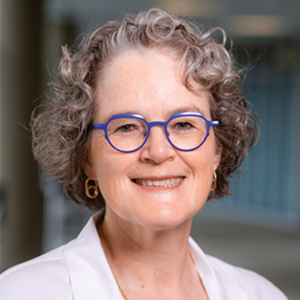Infectious disease expert Jeanne Marrazzo, a UW alum, succeeds Anthony Fauci

Jeanne Marrazzo (Photo courtesy UAB / Lexi Coon)
Her mom was a nurse and her role model. That’s why Jeanne Marrazzo decided to go into medicine. After medical school in Philadelphia, she came to the University of Washington, where she earned a master’s degree in public health, and had a residency and a fellowship. After a successful career in academic medicine—including two decades on the UW faculty—she has become the director of the National Institute of Allergy and Infectious Diseases, succeeding Anthony Fauci, who retired after nearly five decades in December.
Marrazzo frequently appeared on television as an expert during the height of the COVID pandemic. She also made an impact during her time as a professor on the UW faculty from 1996 to 2015.
“She finds these ways to encourage and push and foster growth and development in people,” Jennifer Balkus, an epidemiologist with Public Health—Seattle & King County, told NPR recently. A former colleague from the University of Pittsburgh described Marrazzo as “an exquisite clinician and an exquisite teacher.”
Marrazzo will head an agency with a $6.3 billion budget that supports research to advance the understanding, diagnosis and treatment of infectious, immunologic and allergic diseases. Marrazzo is an expert in HIV and sexually transmitted diseases and is known for building relationships between basic and clinical scientists to find new methods for preventing and managing common diseases.